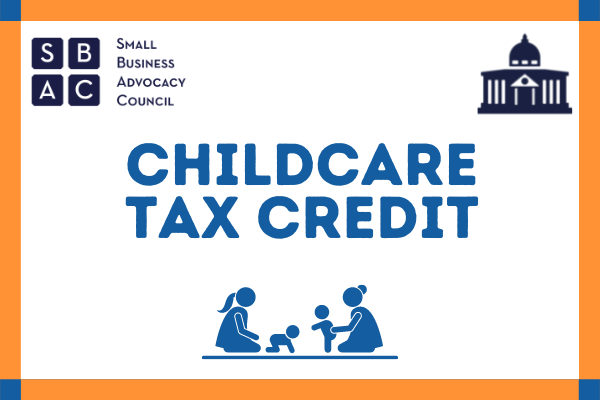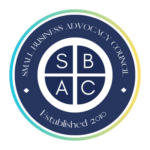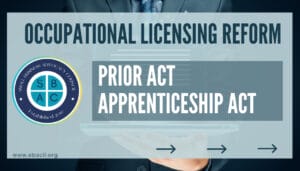
One issue that has lead many to put off re-entering the workforce from the pandemic fallout is the cost and difficulty in terms of finding affordable and quality childcare. The SBAC has determined it is such a significant issue that it has been added to our agenda for the 2022 Spring Session.
The childcare tax credit will provide working families resources to offset the costs associated with childcare. To be eligible, households must jointly earn an annual income below $75,000 and have at least one child under the age of 17. Taxpayers that file individually must earn less than $45,000 and have one child under the age of 17.
Under this program, taxpayers shall receive a $1500 tax credit for the first child under age 17. An additional $500 will be allocated to each additional child under the age of 17 with a max payment of $2500 per family. This credit is intended to be used to offset the costs associated with childcare.
The program will be capped at $100,000,000 absent further appropriations. This tax credit will sunset in 2025 unless extended by the legislature.
Program Details:
- Tax credits for eligible working families to offset the costs of childcare
- Eligible families must earn:
- $75,000 or less filing jointly
- $45,000 or less filing individually
- Eligible families must also have at least one child under the age of 17
- Tax credit of $1500 for the first child under age 17
- $500 increase for each additional child under age 17
- The maximum allowable tax credit per family is $2500
- Program capped at $100,000,000
- Program to sunset in 2025
- Eligible families must earn:
Supporting Self-Employment Assistance (SEA) Programs to Drive Economic Growth
SBAC INSIGHTS PAGE Supporting Self-Employment Assistance (SEA) Programs to Drive Economic Growth To: Illinois Legislators From: Small Business Advocacy Council Date: March 10th 2025 Subject: Supporting Self-Employment Assistance (SEA) Programs to Drive Economic Growth Introduction Self-Employment Assistance (SEA) programs have proven to be a valuable tool in supporting unemployed individuals who seek to establish their own…
Occupational Licensing
SBAC INITIATIVES PAGE Occupational Licensing Reform Resources & Fact Sheets Expand PRIOR ACT Download One-Pager View House Bill Language View Senate Bill Language APPRENTICESHIP ACT Download One-Pager View House Bill Language Find and Contact Your Elected Officials HERE!
Phil Gafka – LEAP Coaching | Latest Blogs
Blogs from Phil Gafka – LEAP Enterprises Phil Gafka of LEAP Coaching has long been a mentor with us here at SBAC Empower, and has provided wonderful insight to the many mentees that he’s worked with and mentored through our program. Here, we collect some of his blogs that he writes for his own website.…












